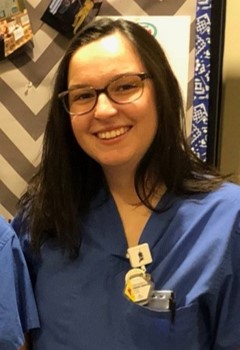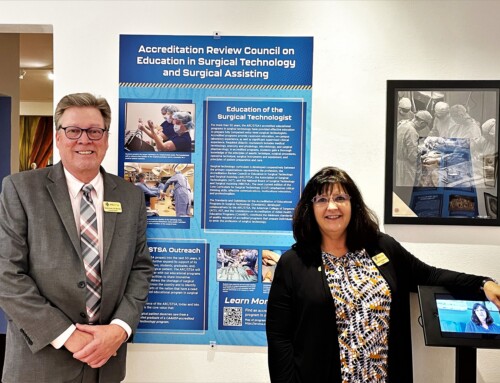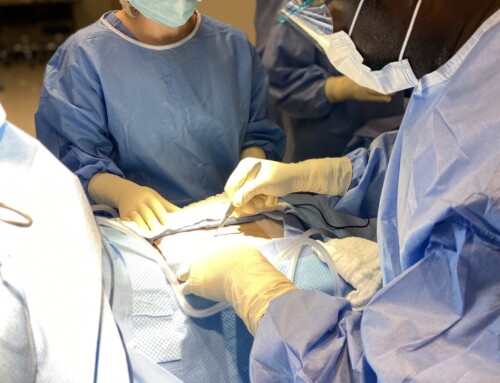A Q&A with Sarah Galbraith, surgical technology student, Reading Hospital School of Health Sciences

Sarah Galbraith is a surgical technology student at Reading Hospital School of Health Sciences, and is quickly approaching graduation. But not long ago, she was a prospective student, applying to the surgical technology program and learning new things along the way.
In this interview, Sarah shares many aspects of her program from which she has benefitted, as well as advice for prospective students starting their own application journey.
Why did you choose the surgical technology program at Reading Hospital School of Health Sciences?
Initially, I did not know that a surgical technology career existed—I discovered it while putting in an application for the nursing program at the same school. After doing more research, I knew that surgical technology was a better fit for me and transferred my application.
What aspects of the surgical technology program do you find most beneficial?
We have had great, consistent clinical experience. We are offered two weeks in each specialty, which I think is a nice amount of time. By the second week, I was independent in that specialty. Both of my instructors are experienced surgical technologists and have both gone through nursing school, as well, which broadens their knowledge. We had a great balance of class time and lab time before going into clinicals, which allowed me to feel very comfortable on my first official day in the operating room. Our preceptors are also phenomenal. They are very approachable and if they can’t answer your questions, they are more than willing to find someone who can.
We are also preparing for the certification exam and have access to many practice exams. The practice exams are especially helpful because they are the same number of questions. Having to sit for an exam that is around 175 questions is very intimidating, but these practice exams have allowed me to learn how to pace myself. They help you understand how questions will be formatted so you know what keywords to look for, such as negative questions (For example: “All of the following are correct EXCEPT…”).
For prospective students, choosing the right program, let alone the right school, can be a challenging process. What is your advice for students navigating this journey? How can they ensure they are choosing the right program?
I only applied to one school, but I would definitely encourage applicants to talk to admission representatives and program directors. Leave no gray areas or gaps in communication. The more you know about the program, the more you can gauge whether or not it’s a good fit for you.
What are three things students should keep in mind when searching for a program?
Knowing the schedule of your program is crucial. I work as an EMT and it was very important for me to be at program where I could still work a fair amount and not feel overwhelmed. Passing rate for the CST exam is important, as well. A program with a low passing rate will most likely not be worth your while.
Lastly, the size of your class is a great thing to consider. Would you prefer a smaller, more personal class or a big lecture type? My program accepts a maximum of 10 students and my graduating class has five. Our small class size has been incredibly helpful to me because one-on-one time was very easy to obtain with our two instructors.
I encourage prospective students to explore all opportunities and keep an open mind.
Be sure to read more articles from the latest ARC/STSA eNewsletter:
- A Report from the ARC/STSA Executive Director
- Safety in Numbers: The Power of Surgical Technologists in the Operating Room
- St. Philip’s College Surgical Technology Program Celebrates 50 Years
- Congrats to 50 Years of Excellence, AST!
- Finding the Right Fit: Advice for Students, From a Student
- ARC/STSA Policy Changes
- Register for the Accreditation Fundamentals for Educators (AFE) Workshop



